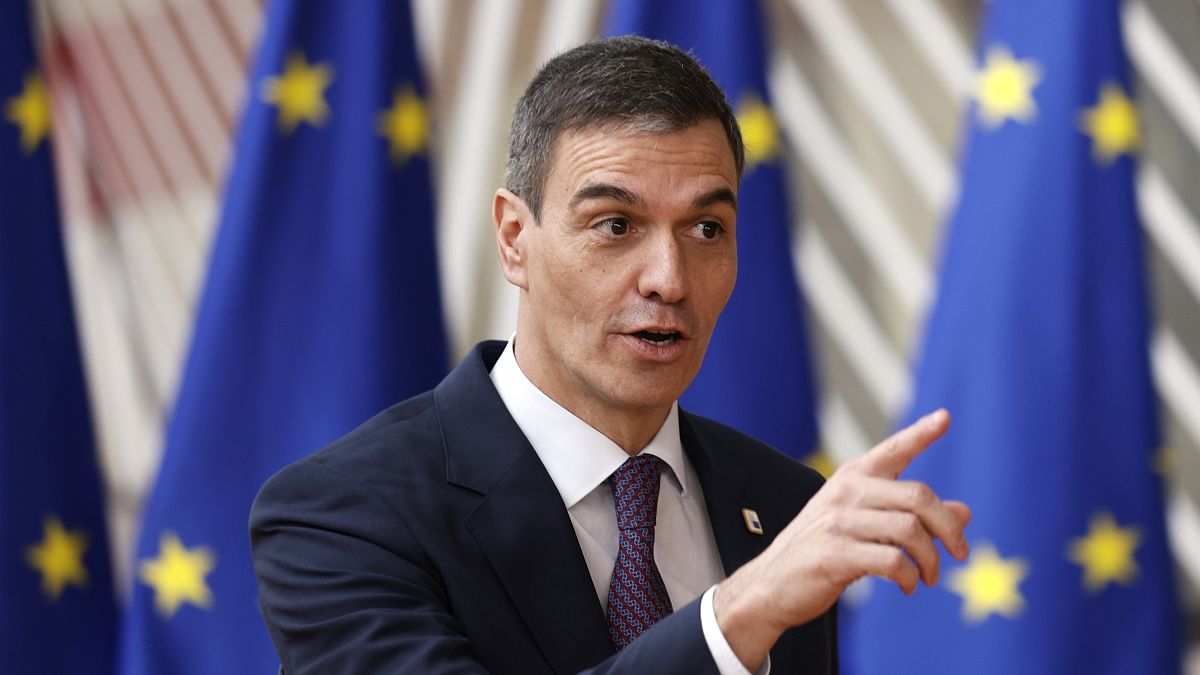Spain’s centre-right PP party came on top in the European elections on Sunday. Yet, their resurgence did not result in the collapse of Premier Pedro Sánchez’s government as the conservatives had hoped.
From the resignation of the Belgian prime minister to the snap vote in France, the European elections have had a ripple effect across the continent.
In Spain, the Popular Party (PP) clinched a notable victory. However, despite the conservatives’ hopes, the socialist government of Pedro Sanchez did not collapse.
And while PP enjoyed renewed popularity, Sánchez’s socialist PSOE party retained a solid base of support.
“It is true that we are committed to the idea that resisting is also a way of winning”, Esther Peña, PSOE spokesperson, said.
The Spanish prime minister still has three years left in his term and currently has no intention of calling early elections.
What’s next for Sánchez
“From an institutional point of view, nothing has changed. The parliament remains where it is, and Pedro Sánchez still has a majority that supports him,” Political analyst Jaime Coulbois told Euronews.
However, the real test for Sánchez lies ahead. His electoral strategy has strained relationships with key allies, including the leftist movement Sumar and the Catalan parties.
Sanchez’s coalition partners lost support in this year’s European elections compared to last year’s general vote, and analysts point to a possible transfer of supporters from Sumar to the socialists.
These tensions are set to come to a head as negotiations begin for the investiture of the president of the Generalitat of Catalonia, where the socialist party won the regional elections but fell short of a majority.
Catalonia remains one of the few regions in Spain where the socialists outperformed the PP, and came in first in two provinces at the expense of pro-independence parties such as Junts and ERC.
Yet, after the European elections on Sunday, Yolanda Díaz, vice president of the Spanish coalition government and leader of Sumar, has decided to step down as coordinator of the movement.
“The citizens have spoken. And I will take responsibility. For this reason, I have decided to step down as coordinator of Sumar”, she said.
Díaz has announced she will continue as vice president and minister of Labour, and she has already announced her group will be more active within the coalition government and will push for more distinctive policies.
A unifying fear
The competition between Sánchez’s allies and his socialists in parliament has already stalled several initiatives and prevented the premier from passing the general budget.
Despite these internal challenges, one factor unites the diverse parliamentary bloc supporting Sánchez: the fear of a potential coalition between the centre-right and the far right.
The prospect of a PP-Vox coalition could drive Sánchez’s allies to remain united.
This shared apprehension may be the glue that holds together an otherwise fragmented alliance, ensuring that Sánchez’s government can continue to function despite potential challenges.

